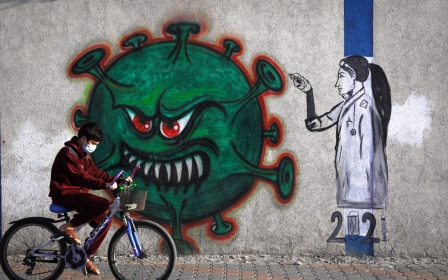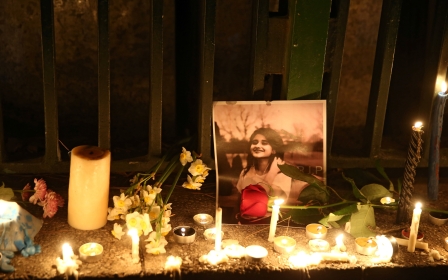Covid-19: Iran cancels Pfizer order after Khamenei bans vaccines from UK and US
Iran said it would not import thousands of coronavirus vaccines donated by Pfizer after Supreme Leader Ayatollah Ali Khamenei banned vaccines produced by the United Kingdom and the United States.
The Iranian Red Crescent society confirmed on Friday to semi-official Tasnim News Agency that it will not accept vaccines donated and produced by Pfizer following Khameini's comments.
"We can confirm that the Red Crescent cancelled 150,000 doses of the Pfizer vaccine for the coronavirus from the United States," a spokesperson for the Iranian Red Crescent told Tasnim.
"One million coronavirus vaccines will be provided instead to the Red Crescent society from one of our allies: Russia, China and India."
Earlier on Friday, Khameini described vaccines coming from Britain and the United States as "completely untrustworthy" during a televised speech in Tehran.
"Imports of US and British vaccines into the country are forbidden... They're completely untrustworthy. It's not unlikely they would want to contaminate other nations," said Khamenei, the country's highest authority.
"Given our experience with France's HIV-tainted blood supplies, French vaccines are not trustworthy either," Khamenei said, referring to the country's contaminated blood scandal of the 1980s and 1990s.
The supreme leader also said vaccines produced in France were "untrustworthy".
Iran has borne the brunt of the coronavirus pandemic in the Middle East, with a recorded 1,274,514 cases and 56,018 deaths as of Friday.
On Monday, Iran's health minister confirmed that it had registered its first case of a new coronavirus variant from a traveller who came from the UK.
The new variant, first identified in Britain, is more contagious than previous variants of the coronavirus.
Last month, Iran launched human trials for its first domestic Covid-19 vaccine in the hopes of fighting the pandemic despite US sanctions, which affect its ability to import drugs and medicines.
Middle East Eye propose une couverture et une analyse indépendantes et incomparables du Moyen-Orient, de l’Afrique du Nord et d’autres régions du monde. Pour en savoir plus sur la reprise de ce contenu et les frais qui s’appliquent, veuillez remplir ce formulaire [en anglais]. Pour en savoir plus sur MEE, cliquez ici [en anglais].




